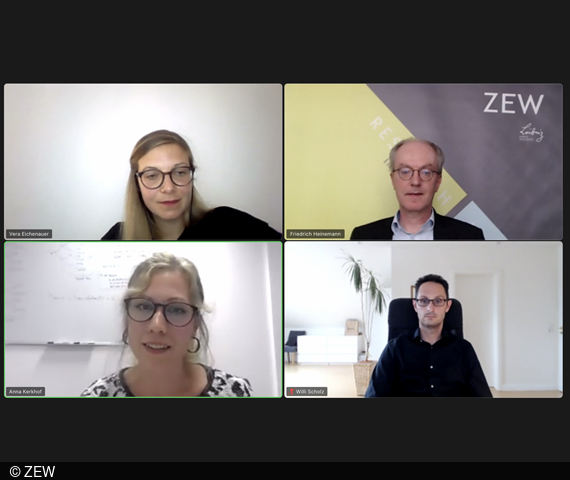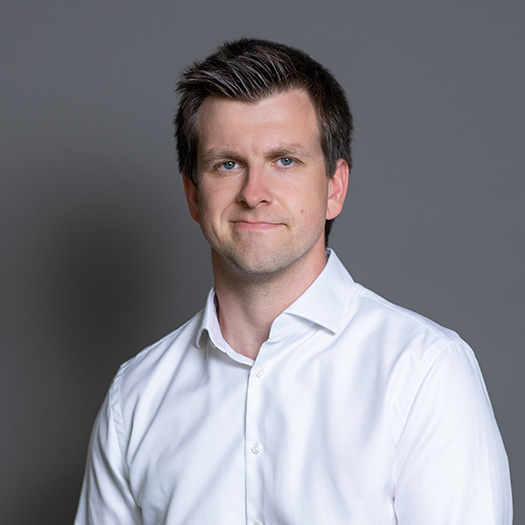How Much Ignorance Can Democracy Take?
WorkshopZEW Workshop on the Effects of Disinformation
How well informed are Germans about economic policy issues? And when it comes to understanding reform projects in politics: What role do economic literacy and disinformation play? How important is the transfer of knowledge? These and other questions were discussed by researchers at a workshop organised by ZEW Mannheim in cooperation with the Brigitte Strube Stiftung on 8 July 2021.
Dr. Vera Eichenauer from ETH Zurich moderated the event. In short presentations, ZEW economist Dr. Sebastian Blesse, Dr. Anna Kerkhof from the ifo Institute and Dr. Willi Scholz from the YES! – Young Economic Summit provided important impulses on this topic, followed by a panel discussion with Professor Friedrich Heinemann, head of the ZEW Research Department “Corporate Taxation and Public Finance”.
Social media and the infodemic
Anna Kerkof provided a deeper understanding of disinformation in social media in her presentation. Disinformation has long since found its way into social media and has become widespread in the wake of Brexit, Donald Trump’s term in office and the COVID-19 pandemic. This ‘infodemic’ floods users with all kinds of information that they cannot escape. The rapid spread of disinformation is mainly due to the specific characteristics of these platforms, which offer their users anonymity and selective media consumption. Kerkof also pleaded for the promotion of media literacy among citizens as well as for fact-checks in social media, although she pointed out the uncertainty of the effectiveness of these offers.
Knowledge transfer at a young age
Willi Scholz explained in his presentation how important it is for researchers and institutes to share knowledge with the population and especially with the younger generation. Within the framework of the YES! school competition, young people learn to understand economic problems that researchers are working on. In the process, they get to know scientific methods and develop their own approaches to solutions. According to Scholz, the close exchange with researchers is very helpful in expanding knowledge on economic topics at a young age.
Science must communicate with the public
In the panel discussion that followed, a variety of questions from the audience were taken up. For example, they addressed the consequences of ignorance for democracy, how to deal with disinformation and the question of how to reach people. Friedrich Heinemann stressed that it is important to be informed in order to be able to better judge conflicting goals. He also criticised that the political debate is increasingly about personalities and less about election programmes. In the end, the panel agreed that science must improve its ways of communicating facts and setting them into context, but also that more media literacy offers must be created for the population so that people can make an informed decision at the ballot box.
The event was supported by the Brigitte Strube Stiftung and initiated as part of the project “The Preference for Simple Economic Policies – Causes and Remedies”, which was completed on 31 July 2021 under the direction of Professor Friedrich Heinemann.
Fact check for election programmes
Sebastian Blesse presented a recent study on information deficits as an obstacle to the implementation of rational economic policies. He and his co-authors highlighted the effects of ignorance and disinformation about economic policy. Representative surveys of the German population showed that voters have considerable economic policy information deficits. Subsequently, the significance of this information deficit for political preferences was examined. They showed that economic policy attitudes are based on individual preferences, but also on perceived external conditions. If these are perceived differently from reality due to disinformation, this can have serious consequences. Reasons for lack of knowledge are e.g. political disinterest, low level of education and lack of media literacy. As a recommendation for action, they suggested expanding the media literacy of the population as well as introducing an independent commission for fact-checks in election programmes.

